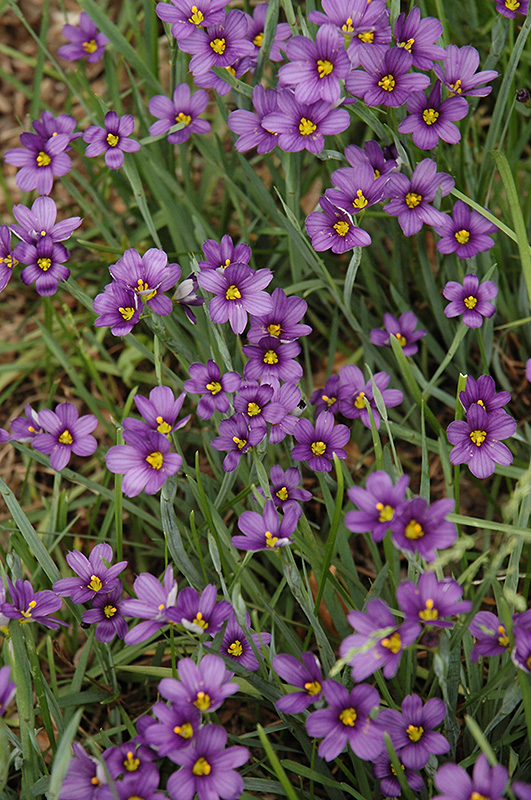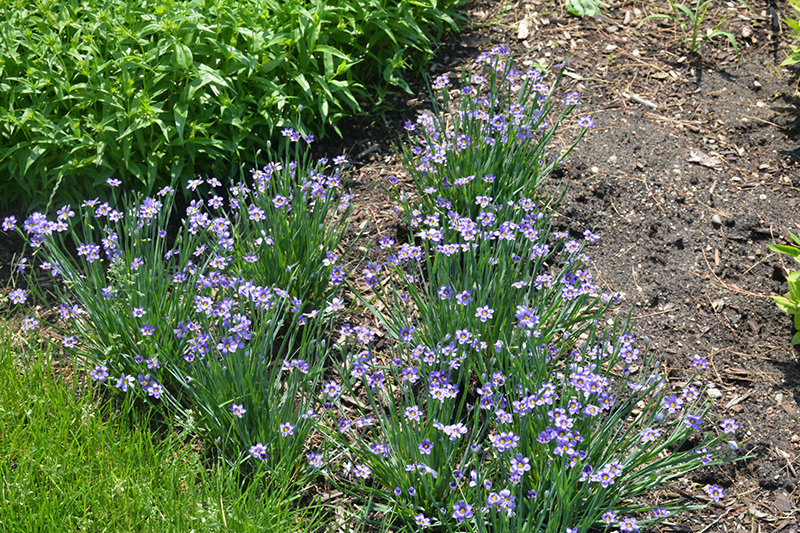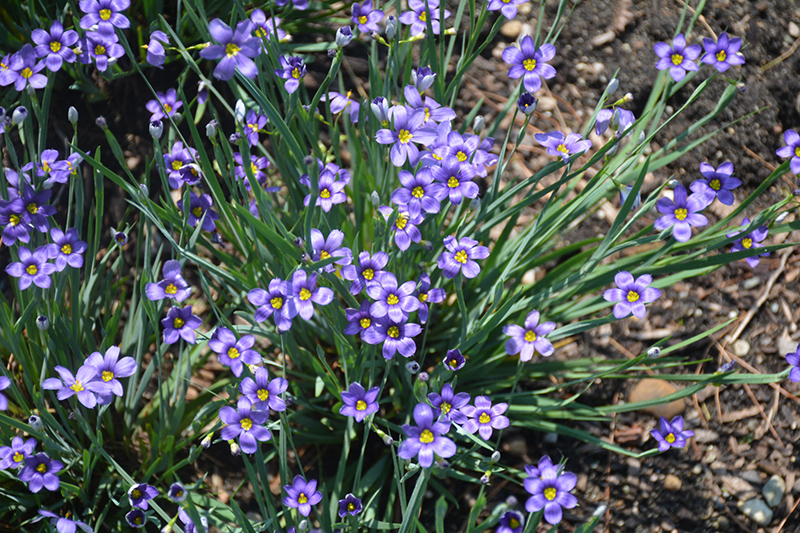Plant Finder
Lucerne Blue-Eyed Grass
Sisyrinchium angustifolium 'Lucerne'
Height: 10 inches
Spread: 10 inches
Sunlight:
![]()
![]()
Hardiness Zone: 4
Other Names: Sisyrinchium bermudianum
Description:
Native through most of eastern North America, this ornamental grass is an exciting flower for the garden as well as for naturalizing with its exquisite blue flowers and silvery emerging foliage
Ornamental Features
Lucerne Blue-Eyed Grass has masses of beautiful plumes of lavender flowers with blue overtones, lemon yellow eyes and violet veins at the ends of the stems from late spring to early summer, which are most effective when planted in groupings. Its attractive glossy narrow leaves emerge silvery blue in spring, turning bluish-green in color throughout the season.
Landscape Attributes
Lucerne Blue-Eyed Grass is an herbaceous perennial with an upright spreading habit of growth. Its medium texture blends into the garden, but can always be balanced by a couple of finer or coarser plants for an effective composition.
This is a high maintenance plant that will require regular care and upkeep, and is best cleaned up in early spring before it resumes active growth for the season. It is a good choice for attracting butterflies and hummingbirds to your yard, but is not particularly attractive to deer who tend to leave it alone in favor of tastier treats. Gardeners should be aware of the following characteristic(s) that may warrant special consideration;
- Self-Seeding
Lucerne Blue-Eyed Grass is recommended for the following landscape applications;
- Mass Planting
- Rock/Alpine Gardens
- General Garden Use
- Naturalizing And Woodland Gardens
- Container Planting
Planting & Growing
Lucerne Blue-Eyed Grass will grow to be about 8 inches tall at maturity, with a spread of 10 inches. Its foliage tends to remain low and dense right to the ground. It grows at a medium rate, and under ideal conditions can be expected to live for approximately 10 years. As an herbaceous perennial, this plant will usually die back to the crown each winter, and will regrow from the base each spring. Be careful not to disturb the crown in late winter when it may not be readily seen!
This plant does best in full sun to partial shade. It prefers to grow in average to moist conditions, and shouldn't be allowed to dry out. It is not particular as to soil pH, but grows best in sandy soils. It is somewhat tolerant of urban pollution. This is a selection of a native North American species. It can be propagated by division; however, as a cultivated variety, be aware that it may be subject to certain restrictions or prohibitions on propagation.
Lucerne Blue-Eyed Grass is a fine choice for the garden, but it is also a good selection for planting in outdoor pots and containers. It is often used as a 'filler' in the 'spiller-thriller-filler' container combination, providing a mass of flowers and foliage against which the larger thriller plants stand out. Note that when growing plants in outdoor containers and baskets, they may require more frequent waterings than they would in the yard or garden. Be aware that in our climate, most plants cannot be expected to survive the winter if left in containers outdoors, and this plant is no exception. Contact our experts for more information on how to protect it over the winter months.


